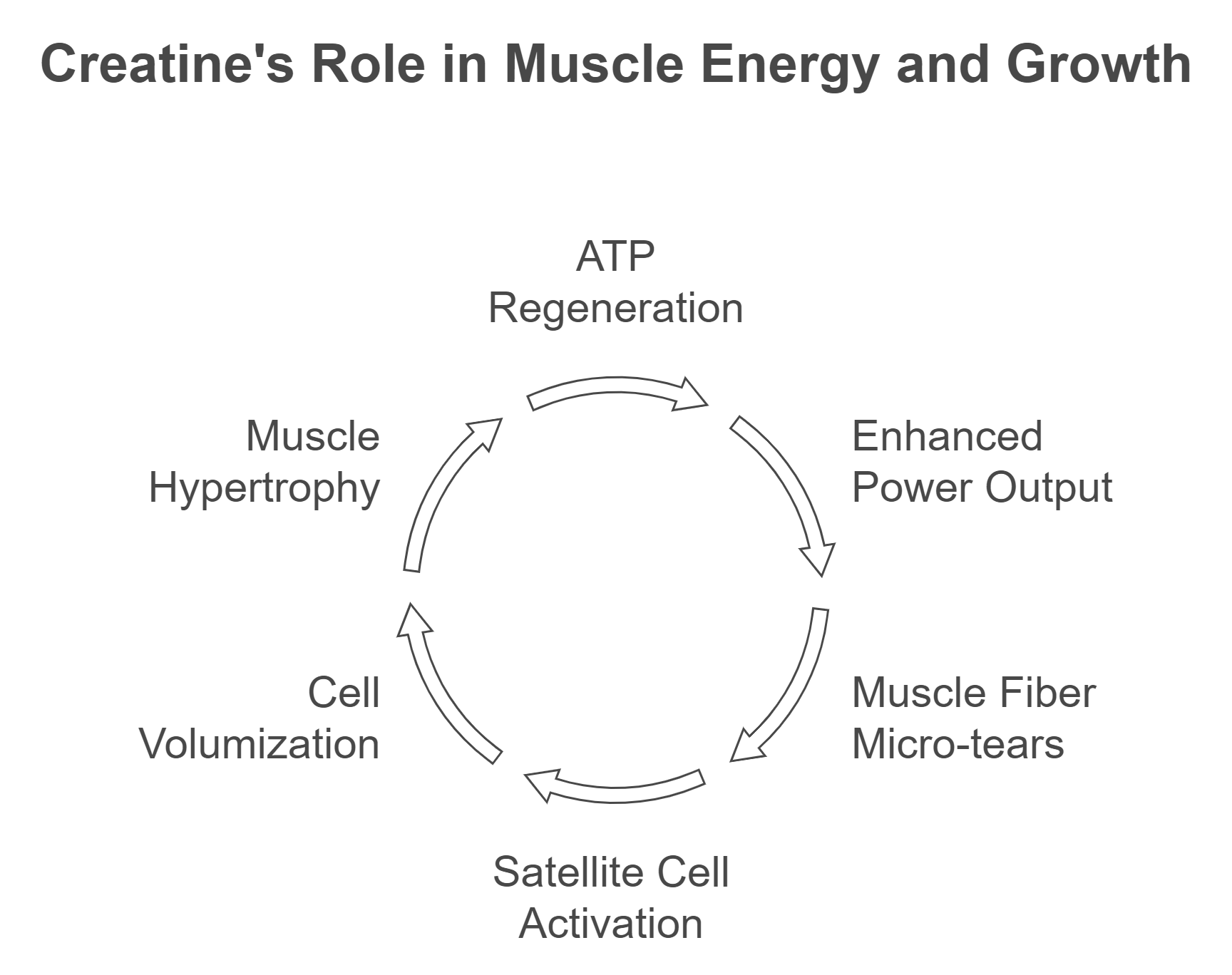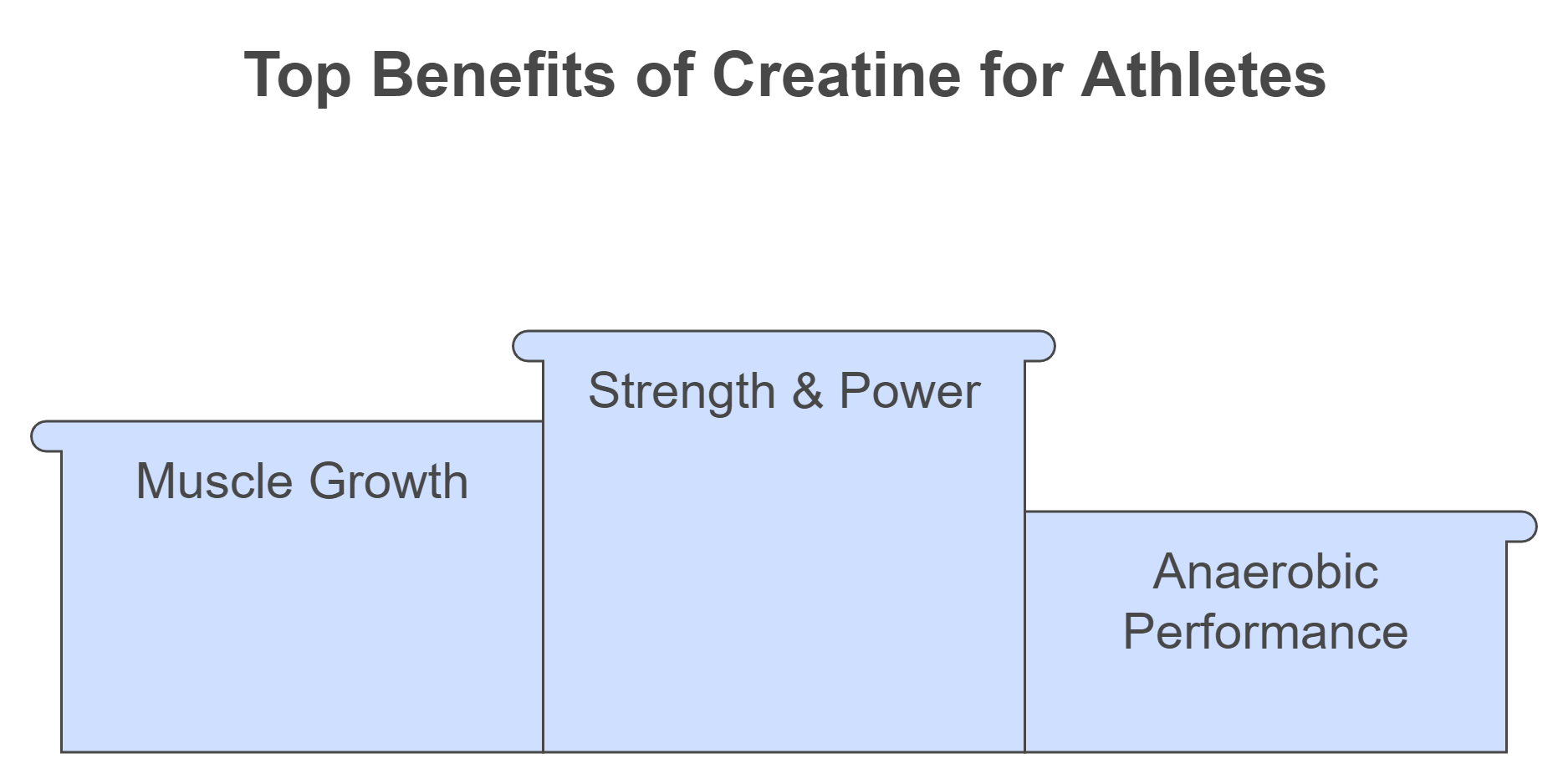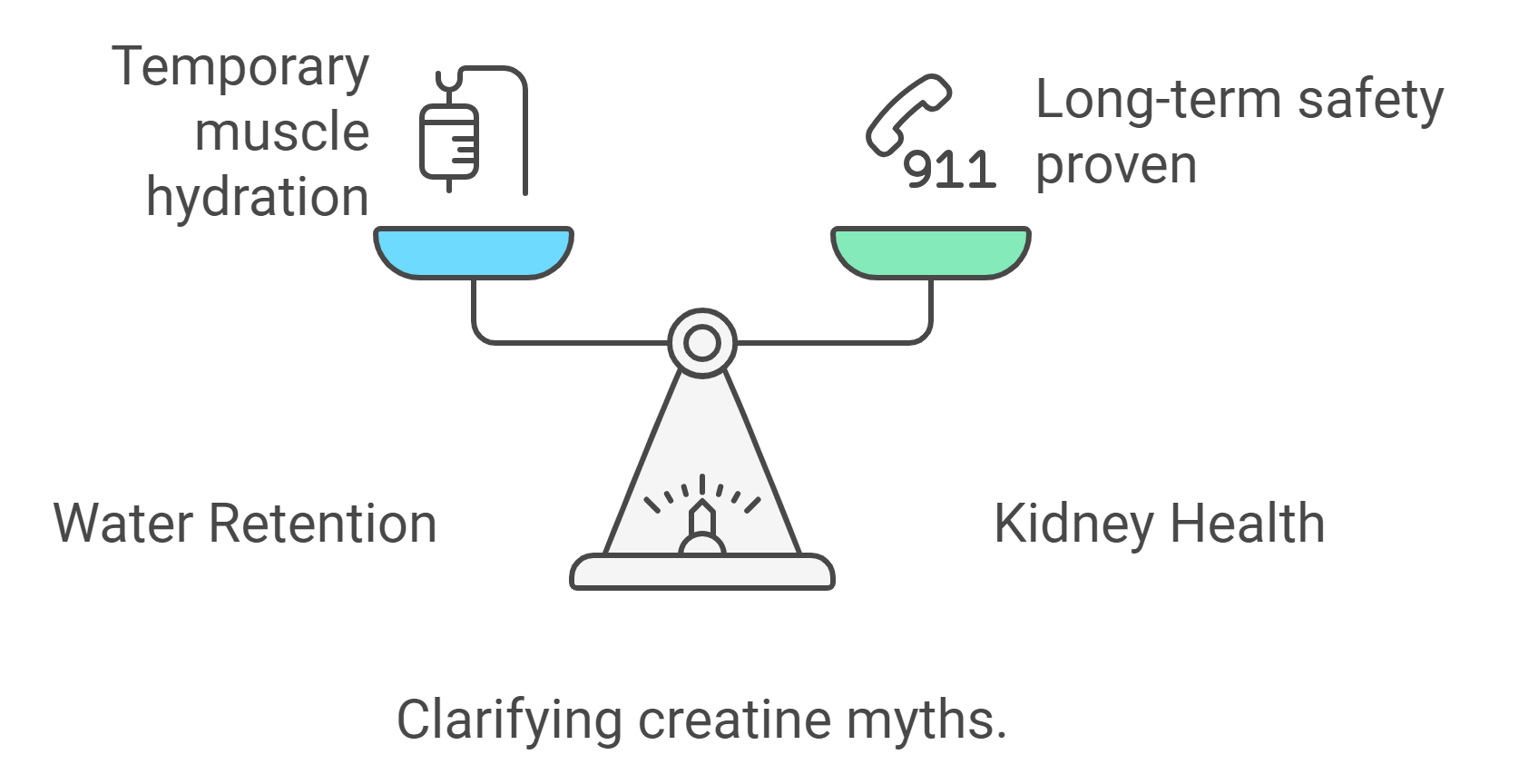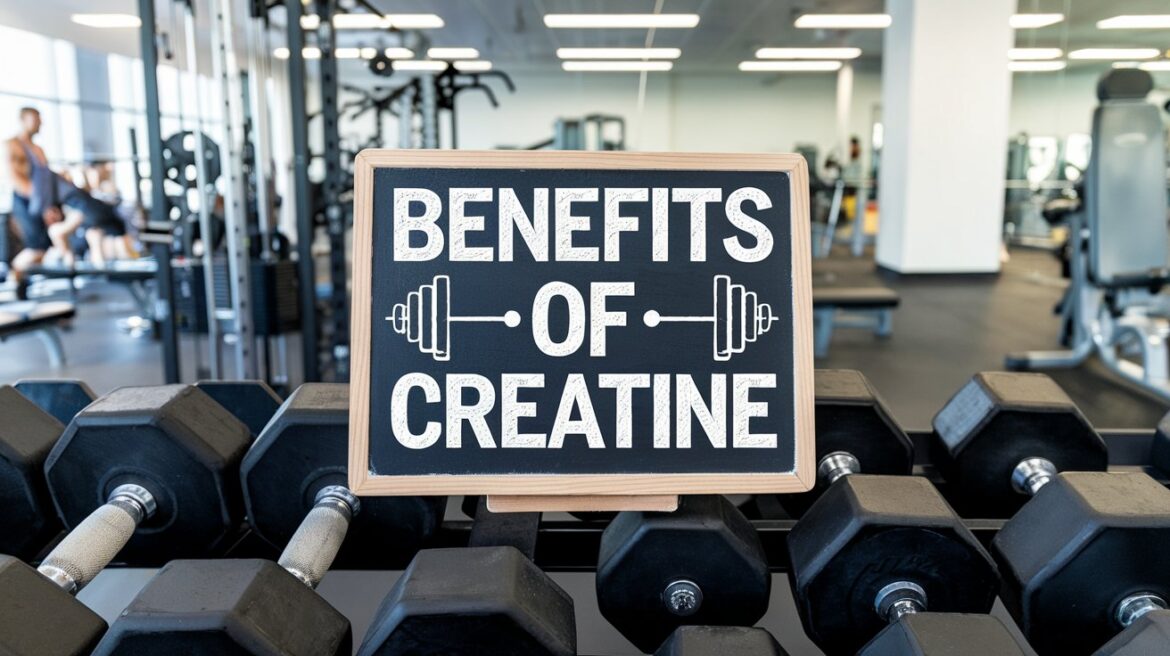INTRO
Apart from the advantages in increasing strength and power as well as muscle mass through replenishment of ATP–adenosine triphosphate, which is the fuel for intense activities, creatine has other benefits in terms of recovery, promoting repairs in muscles and reducing soreness. It even aids in cognitive performance therefore enhancing short-term memory and giving neuroprotective effects, more so in older adults.
What is Creatine and How Does it Work?
Creatine Role in Energy Production
Creatine is an energy-generating molecule which supplies energy in re-generation of ATP, the currency in which the body deals with its currency. In high intensity with short duration exercise, for example weightlifting or sprinting, one uses the ATP faster.
Creatine phosphate in muscles is degraded to produce ATP quickly, so muscle activity can be maintained. This action clearly enhances power output, so athletes are able to exert at their limits during repeated episodes of intense activity.
How Creatine Supports Muscle Growth and Recovery
Creatine plays a significant role in muscle recovery and growth. Muscle fibers experience micro-tears with every intense exercise. Creatine enhances the repair of fibers by enhancing the activities of satellite cells, the cells that repair and elongate the muscle. It also increases cell volumization through the uptake of water within the muscle cells. This does not only contribute to muscle hydration but also an anabolic environment favoring hypertrophy of the muscle.

Creatine Sport Benefits
Increases in Strength and Power Production
Probably one of the best documented effects of creatine is its property to enhance the force and power of exercise intensities by increasing the availability of ATP. It would allow an athlete to handle heavier loads or perform more repetitions, and numerous studies reported that creatine supplementation improved maximal strength in exercises like bench press and squat up to 5-15% over several weeks, especially with resistance training.
Improved Muscle Mass
Creatine also promotes muscle growth by the mechanism of cell volumization, in which water is drawn inside the cells and makes the muscle appear fuller and more hydrated. Users of creatine, with a planned resistance training program, have been shown in research to make increases in lean body mass from 1-2 kilograms (2-4 pounds) over an 8-12 period.
Improved Anaerobic Performance
Creatine is particularly well suited to improving anaerobic performance-short, all-out efforts. Sprinting, powerlifting, and football all require immediate energy production, which creatine improves by increasing levels of phosphocreatine within the muscle cells.
Creatine users note improved performance in repeated activities that require bursts of energy, and they run faster and produce greater explosive power than non-users.

Health Benefits Beyond Sports
Cognitive Effects of Creatine
Evidence is now emerging that creatine has potential cognitive effects, particularly on memory and improved brain functioning.
As well as the ATP needed for muscle contraction, the brain consumes some ATP as fuel; therefore, creatine supplementation increases the availability of ATP in neural tissue.
Improvements in short-term memory and reasoning were observed in older subjects who took creatine.
Neuroprotection may also be afforded against the aging neurodegeneration and neurodegenerative diseases, like Parkinson’s.
Creatine for muscle disorders and chronic disease
Creatine has utility beyond sporting activities. In disorders characterized by the progressive wasting of muscle, creatine supplementation was shown to increase strength and reduce fatigue.
More recently, it has been demonstrated that creatine may have utility in diseases like type 2 diabetes, wherein the enhancement of glucose uptake into muscles and muscle growth, both of which are critical for metabolic health, is encouraged.
Common Myths Over Creatine
Does Creatine Cause Water Retention?
One of the frequent concerns over creatine supplementation is that it makes one retain water, making them waterlogged and hence eventually bloated and temporarily overweight.
Although it is indeed true that supplementation will increase the water content in muscle cells, this effect is only positive in terms of hydration and growth of the muscle. Any associated water retention tends to normalize after the initial few weeks of supplementation and does not normally lead to subcutaneous bloating.
Creatine and Kidney Health: Myth vs. Fact
For years, so many myths have been floating on the damaging effects of creatine on the function of the kidneys. However, scientific-based studies over the years have persistently shown that creatine supplements are safe for long-term use in normal, healthy subjects.
Even clinical studies were performed on athletes who took creatine supplements over a much longer time without showing any severe impairment of kidney function. People with already existing kidney disease should first receive a recommendation from a health professional before they take creatine supplements.

How to Take Creatine for Highest Effects
Loading Phase vs Steady Dose
Two phases of supplementation for creatine are recognized: the loading phase, or steady intake. The loading phase uses 20 grams of creatine per day, dosed in four amounts per day for five to seven days, then a maintenance dose of 3 to 5 grams per day. Users may take 3 to 5 grams daily and allow saturation to occur over several weeks. Both methods work equally well; the loading phase simply accelerates results.
Timing of Supplementation: Pre-Workout vs. Post-Workout
Some athletes prefer to take creatine as a pre-workout supplement since it gives them that instant energy boost. Others want to take it after working out to allow time for post-workout muscle recovery.
Basically, literature suggests that timing isn’t as much of an issue as adherence. For long-term use, either in building up muscles or enhancing strength and performance, the bottom line remains the maintenance of daily use.

FAQ
Does creatine support weight loss?
Creatine can assist in maintaining muscle mass during calorie deficit, hence helping a client maintain their body’s lean mass intact, as they lose those pounds.
Can women take creatine?
Absolutely, and creatine is utterly safe for female ingestion and also bestows them with benefits that are nearly identical to that given to men: that consists of strength increases, better muscle recovery, and improved brain function.
Does creatine actually dehydrate you?
Creatine does not make one dehydrate per se. However, one needs to drink enough water to avoid the discomfort, like cramps caused by the lack of water supply in the body.
Is creatine safe to be taken with other supplements?
Creatine can be stacked safely with most common supplements such as whey protein or BCAAs, especially if one wants additional recovery and performance.
How long does it take to notice benefits with creatine?
Some progress is noticed within a few weeks of supplementing, especially during a loading phase. Usually, muscle growth and improvements in performance will set in by week 4 through week 6.

